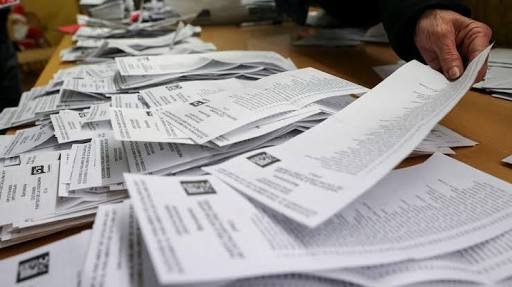From victories for Puigdemont and Ciudadanos, to a record voter turnout and defeat for Rajoy
Catalans went to the polls on Thursday (December 21) for a highly-anticipated regional election that pitted pro-independence parties against those who want to remain united with Spain.
Here are five key takeaways from the vote:
Pro-independence parties secured majority
The pro-independence parties held onto their majority in the regional parliament, dispelling suggestions that the separatist movement had lost momentum.
Junts per Catalunya (Together for Catalonia), Republican Left (Esquerra Republicana) and Popular Unity Candidacy (Candidatura d'Unitat Popular) collectively surpassed the 68 seats needed for a majority.
Defeat for Rajoy
The result marked a serious defeat for Spanish Prime Minister Mariano Rajoy, who called the elections after dismissing Catalonia’s government and taking control of the region following its unilateral declaration of independence based on a referendum deemed illegal by Madrid.
The vote also saw Rajoy’s Popular Party (Partit Popular) perform very poorly, with just three seats in the new Catalan parliament, down from 11 in the 2015 election.
Rajoy’s government had hoped that unionist parties would win a majority to justify the strong measures it has taken in opposing Catalan independence.
Unionist Ciudadanos becomes largest single party in parliament
The independence movement wasn’t the only winner of the night. The unionist Citizens (Ciudadanos) became the biggest individual party in parliament, securing 37 seats, compared to 25 in the 2015 vote.
Party leader Ines Arrimadas said: “It's the first time we've ever won - 1.1 million Catalans have voted for us.”
The victory was particularly significant because it marked the first time that a non-separatist party had secured the biggest single share of the votes, according to analysts.
Record voter turnout
Voter turnout for the election hit a record 81.94 percent, marking a significant increase from the 74.95 percent recorded in the 2015 vote.
Abstentions were put at around 18 percent, compared to 25 percent in 2015.
Puigdemont beats Junqueras
Against the odds, deposed Catalan leader Carles Puigdemont beat fellow separatist leader Oriol Junqueras with the number of seats won by his party.
The Republican Left party of deposed vice-president Junqueras, who contested the election from a prison cell, took 32 seats, compared to 34 won by Puigdemont’s Together for Catalonia.
Puigdemont declares victory over monarchy
Speaking from Belgium, where he is living in self-imposed exile, Puigdemont declared that the Catalan Republic had “beaten the monarchy.”
The separatist politician warned that Europe should “take note” of the result, and said it was a sign that “Rajoy and his allies have lost.”

Hi! I am a robot. I just upvoted you! I found similar content that readers might be interested in:
http://www.euronews.com/2017/12/22/what-we-learned-from-the-catalan-election